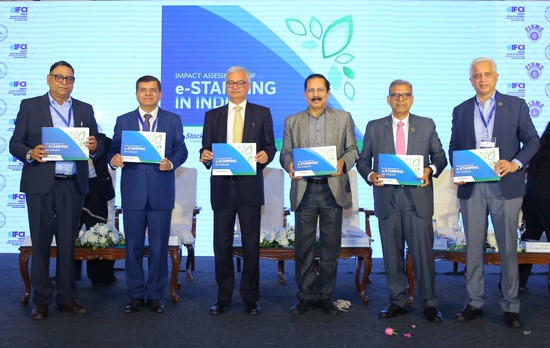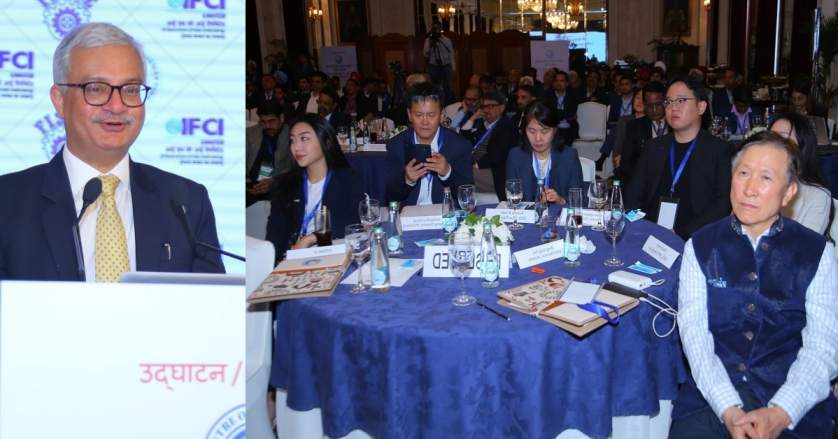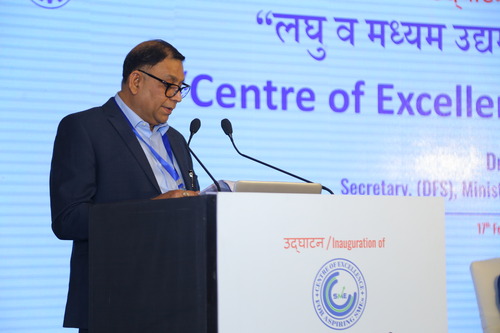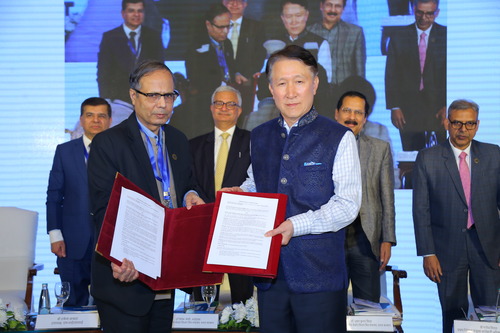Korean SMEs Assn joins hands with Centre of Excellence for aspiring SMEs; Japan & Taiwan to follow suit
India and South Korea strengthen SME cooperation as Centre of Excellence signs MoU with Korean SMEs Association KOSMA, a representative body of over 100 Korean SMEs.
NEW DELHI: In a significant move aimed at fostering collaboration and enhancing the capabilities of small and medium enterprises (SMEs), the Centre of Excellence for Aspiring SMEs (COE), a Joint Initiative of the Federation of Indian Micro and Small & Medium Enterprises (FISME) and IFCI Limited, has entered into a Memorandum of Understanding (MoU) with the Korean Small & Medium Enterprises Association in India (KOSMA).
The signing ceremony took place on the 17th day of February 2024, solidifying a commitment between the entities to facilitate the growth and development of SMEs in both India and South Korea. Dong Hung Pak, Vice Chairman, Korean SME Association in India (KOSMA) signed the MoU from the Korean side while Ravi Ranjan Mishra, Director, Advisory Services, IFCI signed it representing the Indian side.

Present on the occasion were Dr. Vivek Joshi, Secretary, Department of Financial Services, Ministry of Finance, Dr. Bhushan Kumar Sinha, Joint Secretary, DFS, Ministry of Finance, top officials of public sector banks, NSE and BSE, Merchant Bankers, and foreign delegates KOSMA members – Jeong Mun Hong, Ms. Wanhee Ji, Ms. Inhee Ji, and Ms. Chen Yu-Chi (Estela), Executive Director, Economy Division, Taiwan Economic and Cultural Centre (TECC) in India.
According to Anil Bhardwaj, Secretary General, FISME the Centre of Excellence entered into MoU with KOSMA, which represents the interests of South Korean MSMEs established in India. The parties agreed to explore the potential for collaboration by way of establishing joint ventures between SMEs of India and South Korea and facilitating the exchange of knowledge, expertise, and technology between SMEs of both countries.
“Next we plan to enter into a similar understanding with the trade bodies of Japan and Taiwan also. The contribution of SMEs from Japan and Taiwan to the growth o Indian has been immense, and their role is going to go up in the future as well on a larger scale,” he added.

FISME is a Federation of geographical and sectoral associations of Small and Medium Enterprises (SMEs) in India spread across districts and states. FISME focuses primarily on trade and market access issues and reforms with the twin objective of establishing entrepreneurial and competitive environment at home and greater market access for Indian SMEs in India and abroad. Presently, around 740 Associations are its members.
With over 100 member companies spanning various industries, KOSMA’s involvement in this partnership underscores the importance of South Korean SMEs in India’s economic landscape and highlights the potential for further collaboration between the two nations.
The key objectives include exploring potential collaboration in establishing joint ventures between Indian and South Korean SMEs, facilitating the exchange of knowledge, expertise, and technology, providing support and guidance to SMEs interested in joint ventures or other forms of collaboration, and promoting innovation and entrepreneurship among SMEs in both countries.

The agreement sets out various areas of cooperation, including the organization of workshops, seminars, and events to bring together SMEs from both nations. Additionally, joint training programs, mentorship initiatives, and a matchmaking platform will be established to connect Indian and South Korean SMEs with potential partners.
Furthermore, the COE and KOSAM together will identify potential joint venture projects, provide assistance in navigating legal and regulatory requirements, and facilitate technology transfer. Research and sharing of best practices on SME development and collaboration are also part of the cooperative efforts.
To ensure the effective implementation of the MoU, both sides will designate representatives to form a Joint Working Group (JWG). This group will be responsible for overseeing the implementation and progress of the agreement, reporting back to the respective parties.
Additionally, subsequent meetings may be arranged by the JWG to review progress, develop further initiatives, and expand specific programs for mutual benefit. The parties will also coordinate to sponsor delegations, facilitating visits between India and South Korea to achieve the objectives outlined in the MoU.


